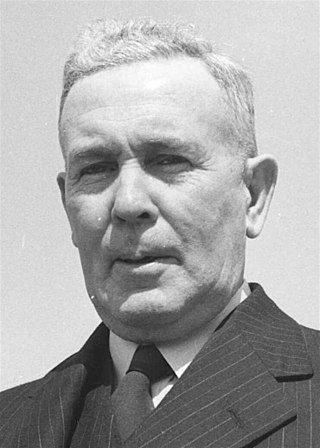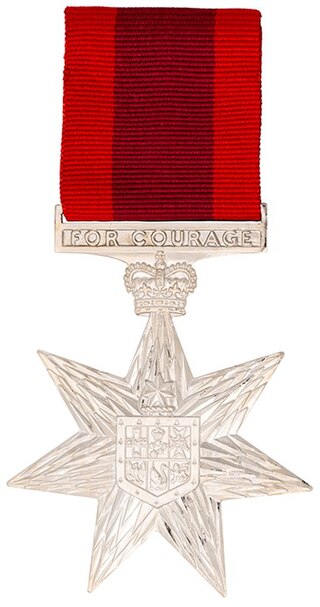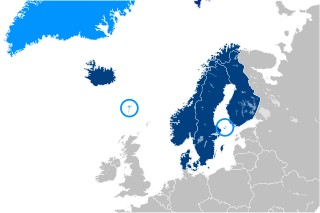Related Research Articles

Joseph Benedict Chifley was an Australian politician and train driver who served as the 16th prime minister of Australia from 1945 to 1949. He held office as the leader of the Australian Labor Party (ALP), and was notable for defining Australia's post-war reconstruction efforts, enacting social and immigration reform and advancing the nationalisation of essential industries.

Unemployment benefits, also called unemployment insurance, unemployment payment, unemployment compensation, or simply unemployment, are payments made by governmental bodies to unemployed people. Depending on the country and the status of the person, those sums may be small, covering only basic needs, or may compensate the lost time proportionally to the previous earned salary.
Child benefit or children's allowance is a social security payment which is distributed to the parents or guardians of children, teenagers and in some cases, young adults. Countries operate different versions of the benefit. In most child benefit is means-tested and the amount paid is usually dependent on the number of children.

Payroll taxes are taxes imposed on employers or employees. They are usually calculated as a percentage of the salaries that employers pay their employees. By law, some payroll taxes are the responsibility of the employee and others fall on the employer, but almost all economists agree that the true economic incidence of a payroll tax is unaffected by this distinction, and falls largely or entirely on workers in the form of lower wages. Because payroll taxes fall exclusively on wages and not on returns to financial or physical investments, payroll taxes may contribute to underinvestment in human capital, such as higher education.
A disability pension is a form of pension given to those people who are permanently or temporarily unable to work due to a disability.

The Department for Work and Pensions (DWP) is a ministerial department of the Government of the United Kingdom. It is responsible for welfare, pensions and child maintenance policy. As the UK's biggest public service department it administers the State Pension and a range of working age, disability and ill health benefits to around 20 million claimants and customers. It is the second-largest governmental department in terms of employees, and the second largest in terms of expenditure.
Education Maintenance Allowance (EMA) is a financial scheme applicable to students aged between sixteen and nineteen and those undertaking unpaid vocational or non-university academic learning in the United Kingdom and whose parents had a certain level of taxable income. It is no longer paid in England. It applies to those doing, or applying to do, at least 12 hours of guided learning on further education courses in school sixth forms, sixth form colleges and Further Education colleges. This includes a wide range of courses up to and including level 3, such as A-levels, GCSEs, BTECs, NVQs and other vocational qualifications. Those partaking in an Entry to Employment must do at least 16 hours a week of guided study.
The Cape York Institute for Policy and Leadership, also known as the Cape York Institute, is an Australian public policy organisation which researches and implements welfare reforms to reduce social inequalities between Indigenous and Non-Indigenous peoples living in Cape York. The Cape York Institute was founded by lawyer, academic and Indigenous welfare advocate Noel Pearson. Established in July 2004, the organisation was developed in collaboration with the people of Cape York and Griffith University. The Institute prepares reports and submissions to the Australian Federal Government, identifying priority areas of welfare and economic reform to restore social norms within the Cape York communities. To deliver welfare and economic reform, the Institute engages with a number of partner organisations including the Cape York Partnerships, Family Responsibilities Commission, Balkanu Cape York Development Corporation and the Cape York Aboriginal Australian Academy. The Cape York Institute receives Commonwealth and Queensland State Government funding to support Welfare Reform Projects in areas of Indigenous education, employment, families and housing.
Work for the Dole is an Australian Government program that is a form of workfare, or work-based welfare. It was first permanently enacted in 1998, having been trialled in 1997. It is one means by which job seekers can satisfy the "mutual obligation requirements" to receive the Newstart Allowance, now replaced by the JobSeeker Payment. Other "mutual obligation" measures can include: accredited study, part-time work, Australian Army Reserves, and volunteer work.

The Star of Courage (SC) is a bravery decoration awarded to Australians. It is awarded for acts of conspicuous courage in circumstances of great peril. The SC was created on 14 February 1975. The decoration recognises acts of bravery by members of the community. They selflessly put themselves in jeopardy to protect the lives or property of others. It is ranked second in the Australian civil bravery decorations in the Australian Honours System. Recipients of the Star of Courage are entitled to use the post-nominal letters "SC".
The AUSTUDY scheme was an Australian educational assistance scheme that provided financial assistance to eligible students aged 16 and over. The program commenced on 1 January 1987 and ceased on 30 June 1998.
This is a list of the maximum potential tax rates around Europe for certain income brackets. It is focused on three types of taxes: corporate, individual, and value added taxes (VAT). It is not intended to represent the true tax burden to either the corporation or the individual in the listed country.
Social security, in Australia, refers to a system of social welfare payments provided by Australian Government to eligible Australian citizens, permanent residents, and limited international visitors. These payments are almost always administered by Centrelink, a program of Services Australia. In Australia, most payments are means tested.
The Fifth National Government of New Zealand was the government of New Zealand for three parliamentary terms from 19 November 2008 to 26 October 2017. John Key served as National Leader and prime minister until December 2016, after which Bill English assumed the premiership until the National Government's defeat following the October 2017 government-forming negotiations.

The Hawke government was the federal executive government of Australia led by Prime Minister Bob Hawke of the Australian Labor Party (ALP) from 1983 to 1991. The government followed the Liberal-National Coalition Fraser government and was succeeded by another Labor administration, the Keating government, led by Paul Keating after an internal party leadership challenge in 1991. Keating was Treasurer through much of Hawke's term as prime minister and the period is sometimes termed the Hawke-Keating government.

Social security or welfare in Finland is very comprehensive compared to what almost all other countries provide. In the late 1980s, Finland had one of the world's most advanced welfare systems, which guaranteed decent living conditions to all Finns. Created almost entirely during the first three decades after World War II, the social security system was an outgrowth of the traditional Nordic belief that the state is not inherently hostile to the well-being of its citizens and can intervene benevolently on their behalf. According to some social historians, the basis of this belief was a relatively benign history that had allowed the gradual emergence of a free and independent peasantry in the Nordic countries and had curtailed the dominance of the nobility and the subsequent formation of a powerful right wing. Finland's history was harsher than the histories of the other Nordic countries but didn't prevent the country from following their path of social development.
The Department of Social Security was a government department in Australia, which administered the Social Security system between 1972 and 1998. The department was one of several new departments established by the Whitlam government and was managed by the Minister for Social Security.
Austudy Payment is a Commonwealth Government of Australia income support payment for students above the age of 25 years of age, paid under the Social Security Act 1991. It commenced operation on the 1 July 1998. Students below the age of 25 years are paid Youth Allowance. Austudy is adjusted on January 1 in line with 12-month changes in inflation.

Social Security Scotland is an executive agency of the Scottish Government with responsibility for social security provision.
In Ireland, there are two categories of social security, contributory, and non-contributory, as well as three main types of payments:
References
- ↑ "ABSTUDY Living Allowance". Services Australia. Retrieved 5 March 2021.
- ↑ "Are Allowances Adequate". Vinnies. Retrieved 5 March 2021.